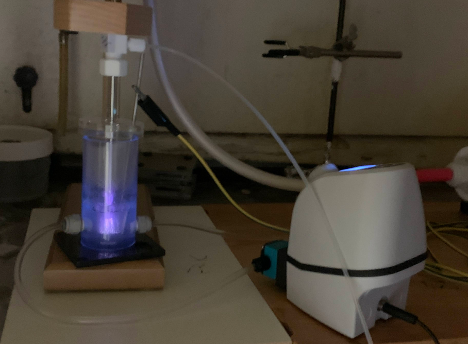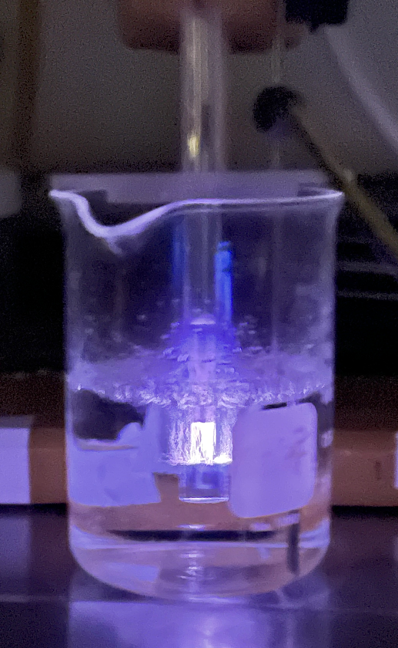We tested and compared conventional (e.g., hydrogen peroxide, peracetic acid, membrane-acting quaternary ammonium compounds) and novel technologies (e.g., plasma-activated water bubbles, plasma-activated hydrogen peroxide water bubbles) on microbial inactivation at low-moisture conditions. Generally, the bacterial cells in low-moisture conditions are extremely resistant to conventional antimicrobial treatments though the plasma based novel technologies were exceptionally effective against the desiccated cells. Since there are several outbreaks related to low-moisture foods and due to their long-term survival, this work has huge importance if plasma based antimicrobial methods are developed for practical application in the future.
Manuscripts:
- *Dhaliwal, H. K., & **Roopesh. M. S. Process technologies for disinfection in the dry food industry (Submitted).
- *Dhaliwal, H. K., Ganzle, M., & **Roopesh. M. S. Understanding the potential of selected sanitation technologies on the inactivation of desiccated Salmonella enterica on stainless steel. (Internal review).
Collaborators:
Dr. Xianqin Yang (Agriculture and Agri-Food Canada)
Dr. Michael Ganzle (Department of AFNS, University of Alberta)
Dr. Lynn McMullen (Department of AFNS, University of Alberta)
Funding support:




